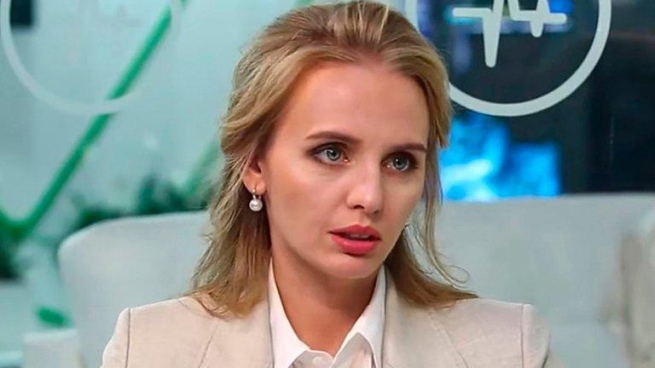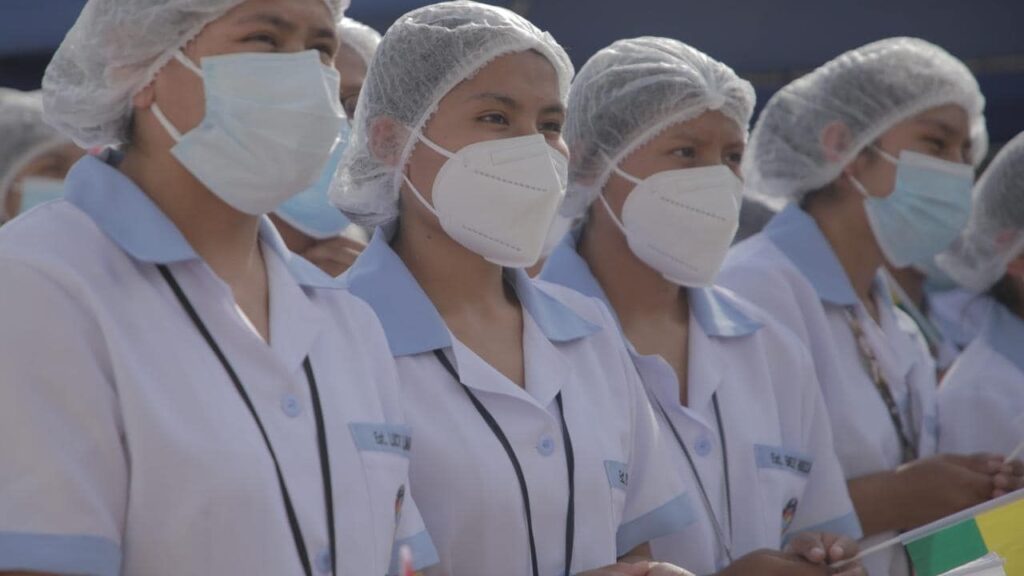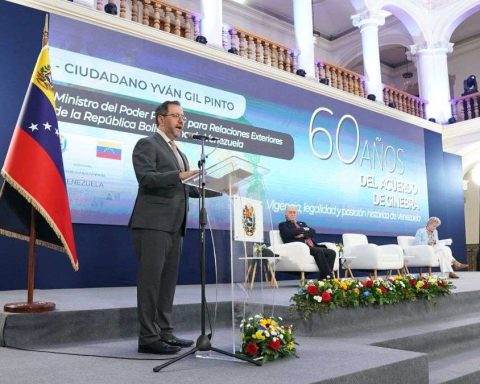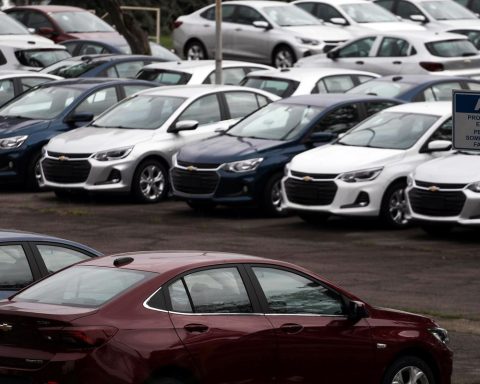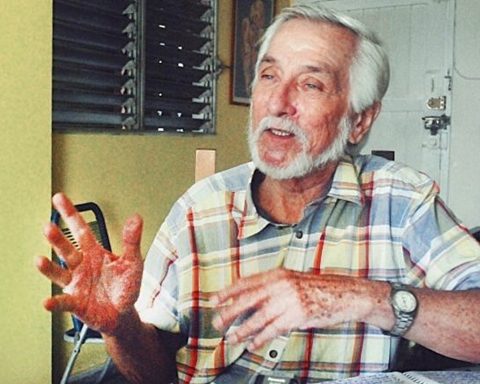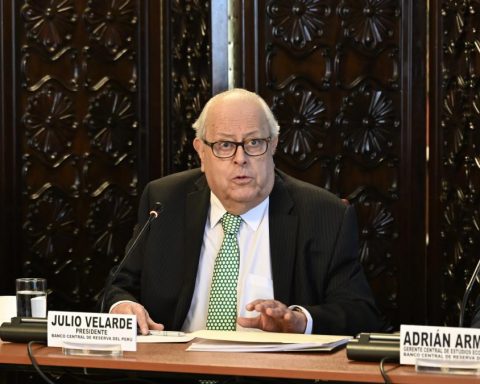New sanctions were added this Friday by the European Union (EU), the United Kingdom and Japan against Russia in retaliation for its invasion of Ukraine, which complete the unprecedented package of penalties launched against the Kremlin by various Western powers and include to the daughters of President Vladimir Putin and Foreign Minister Sergei Lavrov.
Katerina Tikhonova and Maria Vorontsova, daughters of Putin, and Yekaterina Vinokurova, daughter of Lavrovare now banned from entering the UK, where their assets will be frozen, the British Foreign Office said.
London’s decision to attack the “splendid way of life of the circle close to the Kremlin”, according to the British authorities, is aligned with Washington and Brussels, which had already taken similar measures against the daughters of the Russian president.
For its part, the United Kingdom had already sanctioned Polina Kovalevadaughter of Lavrov’s alleged long-term mistress.
British Chancellor Liz Truss assured that all the sanctions decided so far will cause an unprecedented economic crisis in Russia since the fall of the Soviet Union, and considered that more must still be approved.

According to British government analysis, more than £275 billion (over $360 billion) – or 60% of Russia’s foreign reserves – have already been frozen as a result of the sanctions.
“In the G7, we are working with our partners to end the consumption of Russian energy and further hit Putin’s ability to finance his illegal and unjustified invasion of Ukraine,” Liz Truss said in a statement quoted by the news agency. AFP news.
“Together, we are tightening the screws on Russia’s war machine, cutting off Putin’s sources of money,” he added.
So far, the UK has sanctioned more than 1,200 people and companies – including 76 oligarchs – since the Russian military offensive began on February 24.
“In the G7, we are working with our partners to end the consumption of Russian energy and further hit Putin’s ability to finance his illegal and unwarranted invasion of Ukraine. Together we are tightening the screws on Russia’s war machine, cutting Putin’s money sources”Liz Truss
The EU, meanwhile, today adopted a fifth package of sanctions against Russia, which targets key sectors such as coal or maritime and road transport, among others.
The new battery includes the “prohibition of buying, importing or transferring coal and other solid fossil fuels to the EU if they originate in Russia or are exported from Russia, as of August 2022”, a business valued at 8,000 million euros per year .
The measure also orders the closure of community ports for Russian-flagged ships, and of EU roads for carriers from Russia and Belarus, with exemptions for some lines such as agri-food products, medical, pharmaceutical, energy or humanitarian cargo. .

It also bans the export of jet fuel, quantum computers, advanced semiconductors, high-end electronics, software, sensitive machinery, and transportation equipment, amounting to €10 billion; and to the importation of wood, cement, fertilizers, seafood and liquors, for 5,500 million.
This fifth package includes the total veto on the transactions of four key banks that together represent 23% of the Russian banking sector.
Already disconnected from the SWIFT system, these entities will be subject to an asset freeze and will be completely isolated from EU markets.
The head of European diplomacy, Josep Borrell, said that the objective of these sanctions is “to stop the irresponsible, inhumane and aggressive behavior of the Russian troops and to make it clear to those who make the decisions in the Kremlin that their illegal aggression has a high cost”.
Japan has joined the measures against the Kremlin and announced that it will give up Russia’s coal and expel eight of its diplomats, in retaliation for Russia’s “unforgivable war crimes”, Japanese Prime Minister Fumio Kishida said during a television interview.
In 2001, 11% of Japan’s coal imports came from Russia, according to data from the Japanese Ministry of Finance.

Tokyo also announced that it will add another 400 people and 20 organizations from Russia to its sanctions list.
“The sanctions are imposed against some twenty organizations related to the military field, as well as against some 400 natural persons, including military personnel and deputies,” Kishida told a press conference.
According to the head of the Japanese government, Tokyo is also adding to the sanctions the large Russian banks Sberbank and Alfa-Bank and imposing a ban on new investments in Russia.
In addition, from next week it is planned to “ban imports from Russia of various types of machinery, some kinds of wood and vodka,” he added.
On February 24, Russia launched a military offensive in Ukraine under the justification that the kyiv government had been committing crimes against the inhabitants of two Russian-speaking provinces in the Donbass region, which Moscow had previously recognized as independent states.
The Kremlin’s claim includes the violation by Ukraine of the Minsk Peace Agreements of 2014 and 2015, which forced kyiv to give those regions -Lugansk and Donetsk, which in two referendums voted to separate from Ukraine- autonomy and possibilities to choose their own authorities.
After several negotiations there are still no concrete approaches that allow a glimpse of peace.
In retaliation for the invasion, Western powers launched an unprecedented cataract of sanctions to stifle the Russian economy.
According to the Castellum.AI database, Russia is now the country hardest hit by sanctions, ahead of Iran, Syria, North Korea and Venezuela. Since mid-February, almost 5,400 new restrictive measures have been activated in relation to Russia, in addition to the more than 2,750 that were already in force.
